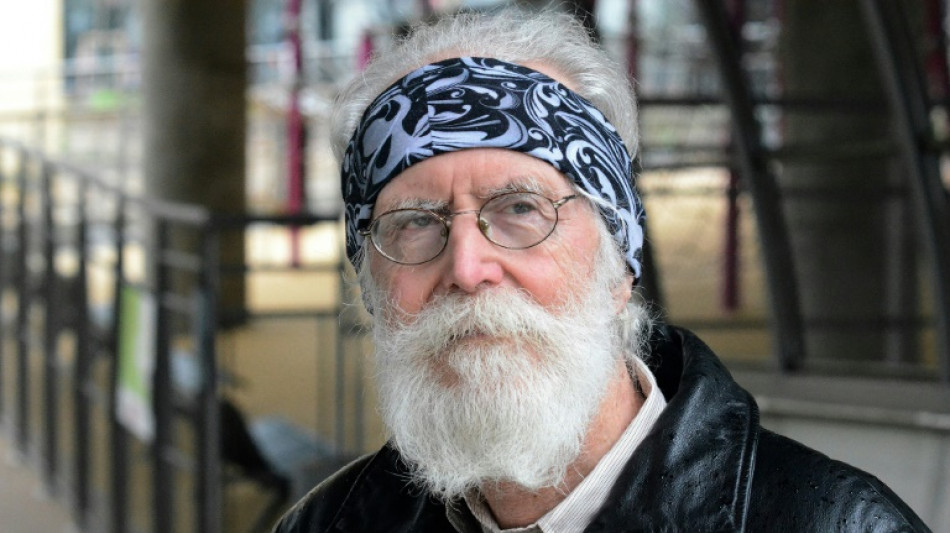
-
 French ice dancers poised for Winter Olympics gold amid turmoil
French ice dancers poised for Winter Olympics gold amid turmoil
-
Norway's Ruud wins error-strewn Olympic freeski slopestyle

-
 More Olympic pain for Shiffrin as Austria win team combined
More Olympic pain for Shiffrin as Austria win team combined
-
Itoje returns to captain England for Scotland Six Nations clash
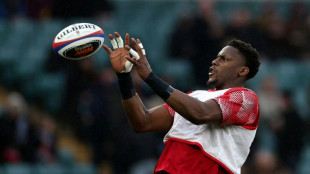
-
 Sahara celebrates desert cultures at Chad festival
Sahara celebrates desert cultures at Chad festival
-
US retail sales flat in December as consumers pull back

-
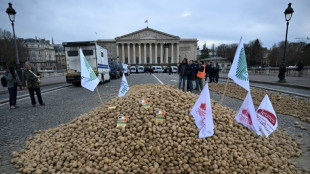 Bumper potato harvests spell crisis for European farmers
Bumper potato harvests spell crisis for European farmers
-
Bangladesh's PM hopeful Rahman warns of 'huge' challenges ahead
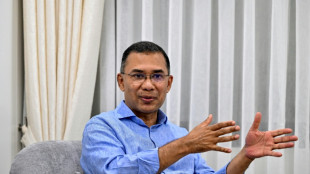
-
 Guardiola seeks solution to Man City's second half struggles
Guardiola seeks solution to Man City's second half struggles
-
Shock on Senegalese campus after student dies during police clashes
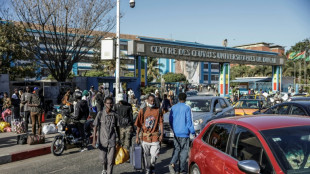
-
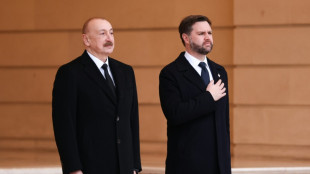 US vice president Vance on peace bid in Azerbaijan after Armenia visit
US vice president Vance on peace bid in Azerbaijan after Armenia visit
-
'Everything is destroyed': Ukrainian power plant in ruins after Russian strike

-
 Shiffrin misses out on Olympic combined medal as Austria win
Shiffrin misses out on Olympic combined medal as Austria win
-
EU lawmakers back plans for digital euro
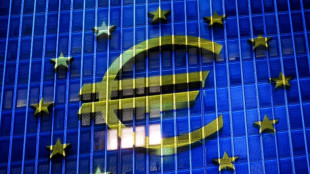
-
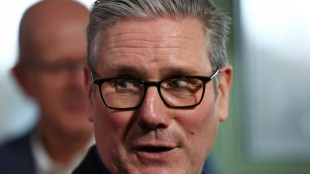 Starmer says UK govt 'united', presses on amid Epstein fallout
Starmer says UK govt 'united', presses on amid Epstein fallout
-
Olympic chiefs offer repairs after medals break

-
 Moscow chokes Telegram as it pushes state-backed rival app
Moscow chokes Telegram as it pushes state-backed rival app
-
ArcelorMittal confirms long-stalled French steel plant revamp
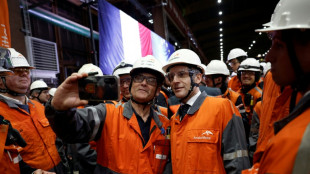
-
 New Zealand set new T20 World Cup record partnership to crush UAE
New Zealand set new T20 World Cup record partnership to crush UAE
-
Norway's Ruud wins Olympic freeski slopestyle gold after error-strewn event

-
 USA's Johnson gets new gold medal after Olympic downhill award broke
USA's Johnson gets new gold medal after Olympic downhill award broke
-
Von Allmen aims for third gold in Olympic super-G

-
 Liverpool need 'perfection' to reach Champions League, admits Slot
Liverpool need 'perfection' to reach Champions League, admits Slot
-
Spotify says active users up 11 percent in fourth quarter to 751 mn

-
 AstraZeneca profit jumps as cancer drug sales grow
AstraZeneca profit jumps as cancer drug sales grow
-
Waseem's 66 enables UAE to post 173-6 against New Zealand

-
 Stocks mostly rise tracking tech, earnings
Stocks mostly rise tracking tech, earnings
-
Say cheese! 'Wallace & Gromit' expo puts kids into motion

-
 BP profits slide awaiting new CEO
BP profits slide awaiting new CEO
-
USA's Johnson sets up Shiffrin for tilt at Olympic combined gold

-
 Trump tariffs hurt French wine and spirits exports
Trump tariffs hurt French wine and spirits exports
-
Bangladesh police deploy to guard 'risky' polling centres

-
 OpenAI starts testing ads in ChatGPT
OpenAI starts testing ads in ChatGPT
-
Three-year heatwave bleached half the planet's coral reefs: study
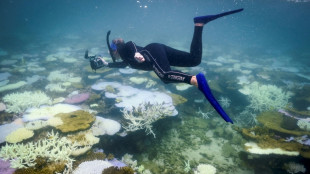
-
 England's Buttler calls McCullum 'as sharp a coach as I ever worked with'
England's Buttler calls McCullum 'as sharp a coach as I ever worked with'
-
Israel PM to meet Trump with Iran missiles high on agenda

-
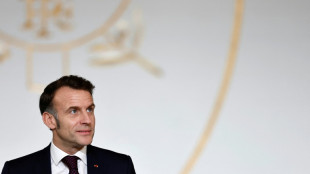 Macron says wants 'European approach' in dialogue with Putin
Macron says wants 'European approach' in dialogue with Putin
-
Georgia waiting 'patiently' for US reset after Vance snub
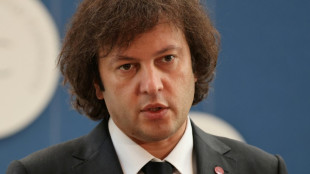
-
 US singer leaves talent agency after CEO named in Epstein files
US singer leaves talent agency after CEO named in Epstein files
-
Skipper Marsh tells Australia to 'get the job done' at T20 World Cup

-
 South Korea avert boycott of Women's Asian Cup weeks before kickoff
South Korea avert boycott of Women's Asian Cup weeks before kickoff
-
Barcelona's unfinished basilica hits new heights despite delays

-
 Back to black: Philips posts first annual profit since 2021
Back to black: Philips posts first annual profit since 2021
-
South Korea police raid spy agency over drone flight into North
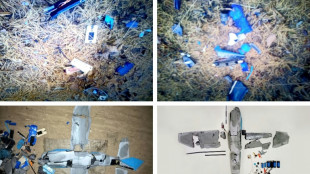
-
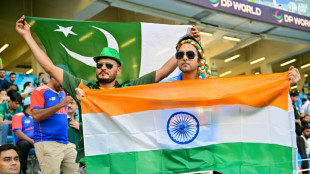 'Good sense' hailed as blockbuster Pakistan-India match to go ahead
'Good sense' hailed as blockbuster Pakistan-India match to go ahead
-
Man arrested in Thailand for smuggling rhino horn inside meat
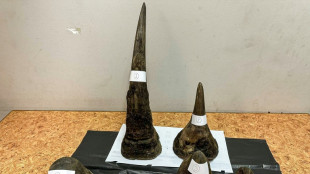
-
 Man City eye Premier League title twist as pressure mounts on Frank and Howe
Man City eye Premier League title twist as pressure mounts on Frank and Howe
-
South Korea police raid spy agency over drone flights into North
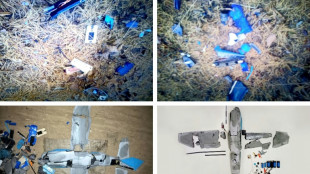
-
 Solar, wind capacity growth slowed last year, analysis shows
Solar, wind capacity growth slowed last year, analysis shows
-
'Family and intimacy under pressure' at Berlin film festival
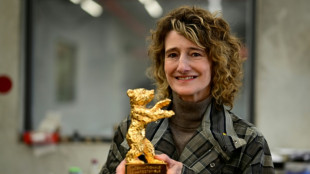

'I had such fun!', says winner of top maths prize
For Michel Talagrand, who won the Abel mathematics prize on Wednesday, maths provided a fun life free from all constraints -- and an escape from the eye problems he suffered as a child.
"Maths, the more you do it, the easier it gets," the 72-year-old said in an interview with AFP.
He is the fifth French Abel winner since the award was created by Norway's government in 2003 to compensate for the lack of a Nobel prize in mathematics.
Talagrand's career in functional analysis and probability theory saw him tame some of the incredibly complicated limits of random behaviour.
But the mathematician said he had just been "studying very simple things by understanding them absolutely thoroughly."
Talagrand said he was stunned when told by the Norwegian Academy of Science and Letters that he had won the Abel prize.
"I did not react -- I literally didn't think for at least five seconds," he said, adding that he was very happy for his wife and two children.
- Fear of going blind -
When he was young, Talagrand only turned to maths "out of necessity," he said.
By the age of 15, he had endured multiple retinal detachments and "lived in terror of going blind".
Unable to run around with friends in Lyon, Talagrand immersed himself in his studies.
His father had a maths degree and so he followed the same path. He said he was a "mediocre" student in other areas.
Talagrand was particularly poor at spelling, and still lashes out at what he calls its "arbitrary rules".
Especially in comparison to maths, which has "an order in which you do well if you are sensitive to it," he said.
In 1974, Talagrand was recruited by the French National Centre for Scientific Research (CNRS), before getting a PhD at Paris VI University.
He spent a decade studying functional analysis before finding his "thing": probability.
It was then that Talagrand developed his influential theory about "Gaussian processes," which made it possible to study some random phenomena.
Australian mathematician Matt Parker said that Talagrand had helped tame these "complicated random processes".
Physicists had previously developed theories on the limits of how randomness behaves, but Talagrand was able to use mathematics to prove these limits, Parker said on the Abel Prize website.
- 'Monstrously complicated' -
"In a sense, things are as simple as could be -- whereas mathematical objects can be monstrously complicated," Talagrand said.
His work deepening the understanding of random phenomena "has become essential in today's world," the CNRS said, citing algorithms which are "the basis of our weather forecasts and our major linguistic models".
Rather than creating a "brutal transformation", Talagrand considers his discoveries as a collective work he compared to "the construction of a cathedral in which everyone lays a stone".
He noted that French mathematics had been doing well an elite level, notching up both Abel prizes and Fields medals -- the other equivalent to a maths Nobel, which is only awarded to mathematicians under 40.
"But the situation is far less brilliant in schools," where young people are increasingly less attracted to the discipline, he lamented.
The new Abel winner admitted that maths can be daunting at first, but re-emphasised his belief that it gets easier the more you do it.
He advised aspiring mathematicians not to worry about failure.
"You can fail to solve a problem 10 times -- but that doesn't matter if you succeed on the 11th try," he said.
It can also be hard work.
"All my life I worked to the point of exhaustion -- but I had such fun!" he said.
"With maths, you have all the resources within yourself. You work without any constraints, free from concerns about money or bosses," he added.
"It's marvellous."
Talagrand will receive his prize, including a 7.5-million-kroner ($705,000) cheque, in Oslo on May 21.
B.Finley--AMWN

